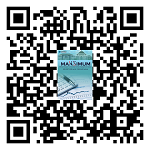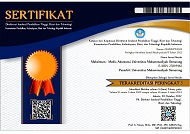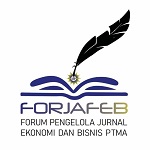Accelerating Digital Banking Transformation Through User Acceptance: a study on the Millennial Cultural
(1) UIN SALATIGA
(2) UIN SALATIGA
(*) Corresponding Author
Abstract
This study aims to examine a conceptual model that explains the main factors that influence the behavioural intention of the millennial generation in their acceptance of the use of digital banking. The conceptual model is based on the Unified Theory of Acceptance and Use of Technology 2 (UTAUT2), with experience as a moderating variable. The modelling was carried out using the Partial Least Square Structural Equation Modeling (PLS-SEM) equation to analyze the data collected from the questionnaires filled out by the respondents. The research results show that behavioural intentions are significantly influenced by performance expectancy, effort expectancy, facilitating conditions, hedonic motivation, and habit. Social influence and price value are not factors that contribute to the cultural behaviour intention of the millennial generation towards accepting the use of digital banking. In line with hypothesis testing, moderation testing with experience as a moderating variable that has no influence is social influence and price value. This study offers the banking sector to design and market products through technological innovation that can become a competitive advantage, thereby increasing the digital banking acceptance of the millennial generation in Central Java.
Keywords
Full Text:
PDFReferences
Akhlaq, A., & Ahmed, E. (2013). The effect of motivation on trust in the acceptance of internet banking in a low income country. International Journal of Bank Marketing, 31(2), 115–125. https://doi.org/10.1108/02652321311298690/FULL/HTML
Alalwan, A. A. (2018). Investigating the impact of social media advertising features on customer purchase intention. International Journal of Information Management, 42. https://doi.org/10.1016/j.ijinfomgt.2018.06.001
Al-Hawari, M., Ward, T., & Newby, L. (2009). The relationship between service quality and retention within the automated and traditional contexts of retail banking. Journal of Service Management, 20(4). https://doi.org/10.1108/09564230910978539
Al-Somali, S. A., Gholami, R., & Clegg, B. (2009). An investigation into the acceptance of online banking in Saudi Arabia. Technovation, 29(2). https://doi.org/10.1016/j.technovation.2008.07.004
Badan Pusat Statistik. (2020). Bps, 2020. In Badan Pusat Statistik (Vol. 148, Issue 63).
Hair, J. F., Sarstedt, M., Hopkins, L., & Kuppelwieser, V. G. (2014). Partial least squares structural equation modeling (PLS-SEM): An emerging tool in business research. In European Business Review (Vol. 26, Issue 2). https://doi.org/10.1108/EBR-10-2013-0128
Hilal, A., & Varela-Neira, C. (2022). Understanding Consumer Adoption of Mobile Banking: Extending the UTAUT2 Model with Proactive Personality. Sustainability (Switzerland), 14(22). https://doi.org/10.3390/su142214708
Kementerian Komunikasi dan Informatika. (2022). Laporan Tahunan 2021 Kementerian Kominfo. Kementerian Komunikasi Dan Informatika.
Khan, I. U., Hameed, Z., & Khan, S. U. (2017). Understanding Online Banking Adoption in a Developing Country. Journal of Global Information Management, 25(1), 43–65. https://doi.org/10.4018/JGIM.2017010103:
Lin, J. S. C., & Chang, H. C. (2011). The role of technology readiness in self-service technology acceptance. In Managing Service Quality (Vol. 21, Issue 4). https://doi.org/10.1108/09604521111146289
Martins, C., Oliveira, T., & Popovič, A. (2014). Understanding the internet banking adoption: A unified theory of acceptance and use of technology and perceived risk application. International Journal of Information Management, 34(1). https://doi.org/10.1016/j.ijinfomgt.2013.06.002
Masa’deh, R., Obeidat, B. Y., & Tarhini, A. (2016). A Jordanian empirical study of the associations among transformational leadership, transactional leadership, knowledge sharing, job performance, and firm performance: A structural equation modelling approach. Journal of Management Development, 35(5). https://doi.org/10.1108/JMD-09-2015-0134
Migliore, G., Wagner, R., Cechella, F. S., & Liébana-Cabanillas, F. (2022). Antecedents to the Adoption of Mobile Payment in China and Italy: an Integration of UTAUT2 and Innovation Resistance Theory. Information Systems Frontiers, 24(6). https://doi.org/10.1007/s10796-021-10237-2
Owusu Kwateng, K., Osei Atiemo, K. A., & Appiah, C. (2019). Acceptance and use of mobile banking: an application of UTAUT2. Journal of Enterprise Information Management, 32(1). https://doi.org/10.1108/JEIM-03-2018-0055
Rodrigues, L. F., Oliveira, A., & Costa, C. J. (2016). Does ease-of-use contributes to the perception of enjoyment? A case of gamification in e-banking. Computers in Human Behavior, 61. https://doi.org/10.1016/j.chb.2016.03.015
Schmitz, A., Díaz-Martín, A. M., & Yagüe Guillén, M. J. (2022). Modifying UTAUT2 for a cross-country comparison of telemedicine adoption. Computers in Human Behavior, 130. https://doi.org/10.1016/j.chb.2022.107183
Sharma, S. K., Govindaluri, S. M., Muharrami, S. M., & Tarhini, A. (2017). A multi-analytical model for mobile banking adoption: a developing country perspective. Review of International Business and Strategy, 27(1), 133–148. https://doi.org/10.1108/RIBS-11-2016-0074/FULL/HTML
Shoheib, Z., & Abu-Shanab, E. A. (2022). Adapting the UTAUT2 Model for Social Commerce Context. International Journal of E-Business Research, 18(1). https://doi.org/10.4018/IJEBR.293293
Tamilmani, K., Rana, N. P., & Dwivedi, Y. K. (2021). Consumer Acceptance and Use of Information Technology: A Meta-Analytic Evaluation of UTAUT2. Information Systems Frontiers, 23(4). https://doi.org/10.1007/s10796-020-10007-6
Tétard, F., & Collan, M. (2009). Lazy user theory: A dynamic model to understand user selection of products and services. Proceedings of the 42nd Annual Hawaii International Conference on System Sciences, HICSS. https://doi.org/10.1109/HICSS.2009.287
Tsindeliani, I. A., Proshunin, M. M., Sadovskaya, T. D., Popkova, Z. G., Davydova, M. A., & Babayan, O. A. (2022). Digital transformation of the banking system in the context of sustainable development. Journal of Money Laundering Control, 25(1). https://doi.org/10.1108/JMLC-02-2021-0011
Venkatesh, V., & Davis, F. D. (2000). Theoretical extension of the Technology Acceptance Model: Four longitudinal field studies. Management Science, 46(2). https://doi.org/10.1287/mnsc.46.2.186.11926
Venkatesh, V., Morris, M. G., Davis, G. B., & Davis, F. D. (2003). User acceptance of information technology: Toward a unified view. MIS Quarterly: Management Information Systems, 27(3). https://doi.org/10.2307/30036540
Venkatesh, V., Thong, J. Y. L., & Xu, X. (2012). Consumer acceptance and use of information technology: Extending the unified theory of acceptance and use of technology. MIS Quarterly: Management Information Systems, 36(1). https://doi.org/10.2307/41410412
Videsia, Y., Agung, R. E. W., & Nurcahyono, N. (2022). Pengaruh Profitabilitas Dan Opini Audit Terhadap Ketepatan Waktu Pelaporan Keuangan. Review of Applied Accounting Research, 2(1), 1-13.
Vinerean, S., Budac, C., Baltador, L. A., & Dabija, D. C. (2022). Assessing the Effects of the COVID-19 Pandemic on M-Commerce Adoption: An Adapted UTAUT2 Approach. Electronics (Switzerland), 11(8). https://doi.org/10.3390/electronics11081269
Yoon, H. S., & Barker Steege, L. M. (2013). Development of a quantitative model of the impact of customers’ personality and perceptions on Internet banking use. Computers in Human Behavior, 29(3). https://doi.org/10.1016/j.chb.2012.10.005
Article Metrics
Abstract view : 404 timesPDF - 4 times
DOI: https://doi.org/10.26714/mki.14.1.2024.74-87
Refbacks
- There are currently no refbacks.
-----------------------------------------------------------------------------------------------------------------------------------------------------------------------------------
 | MAKSIMUM: Media Akuntansi Universitas Muhammadiyah Semarang |
![]()
Maksimum: Media Akuntansi Universitas Muhammadiyah Semarang is licensed under a Creative Commons Attribution Attribution-NonCommercial-NoDerivatives 4.0 International License.

















